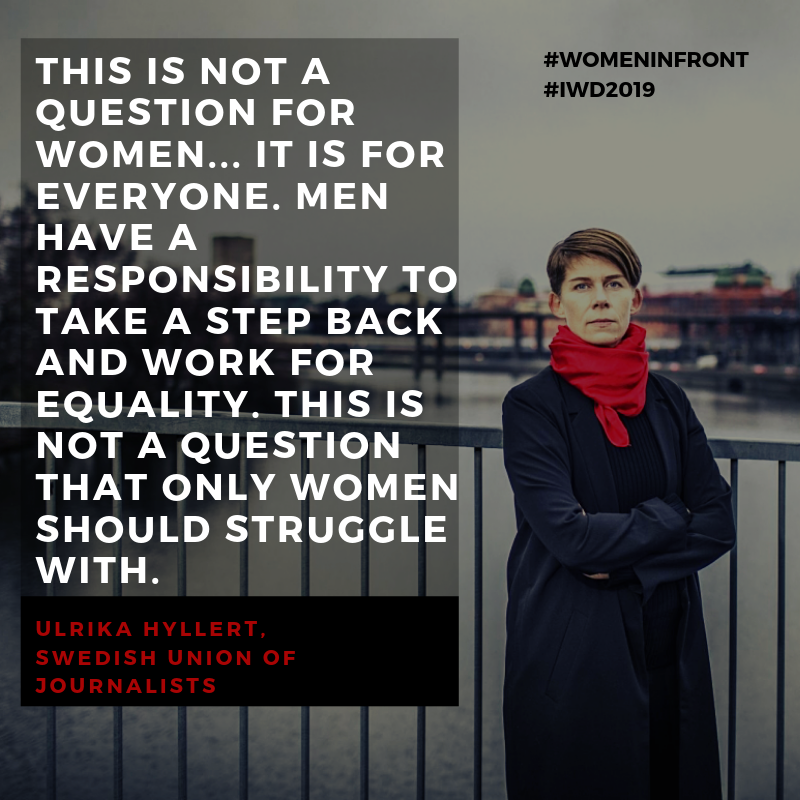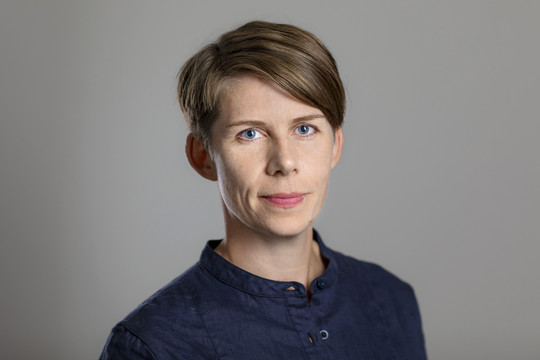How would you describe the situation of women in media in your own country? What are the challenges they face reaching top-level positions?
In Sweden, we have probably a better situation than in many other countries. But of course, it is not perfect. There are a lot of women journalists: there's 50% men and 50% women working as journalists. But if you look at the top-level positions, there are not as many women as men. A newspapers conducted a research looking at women CEOs in the media in Sweden. And there are just 2 women out of 10 CEOs. The more power, the fewer women. And that is of course a problem.
What are the consequences of this lack of women in managing positions in media?
I think that in the end, we will get better journalism if women and men are equal, even at the top. Working conditions also improve when women are at the top because it brings another perspective. Women and men have different experiences. Of course, it is also possible that men really care and do a perfect job and it is fine but it will probably be easier if there are more women to make a difference.
As a woman who reached a leadership position, have you faced any obstacle because of your gender? If yes, which ones?
Yes, I have been thinking of that… I have probably experience some challenges but not big challenges. When I was working as a reporter, there were men with less experience than me and who had better wages. I really can’t say that it was discrimination, but it probably was. And I think that, like all women, I had to do a much better work to meet the same opportunities as my male colleagues. Because the experience of men is valuated higher. But I think that most women have met more problems than me, and that is probably because I have been working in a workplace, at the Swedish Broadcasting Radio, where there are a lot of women. The CEO is a woman and it makes a difference. They are working on gender diversity and other diversity issues.
 How can we solve this situation? Considering your personal experience, what would you suggest to reach gender equality in media?
How can we solve this situation? Considering your personal experience, what would you suggest to reach gender equality in media?
It must be on the top of unions’ agenda. We have to put pressure on the employers, on the companies. It is a human right and it is also an economic asset. If you have groups and boards working together, there is proof that if you have diversity, it will be better for everyone and you will make more money. So it is also an economic thing! This argument usually works when you talk to the bosses. But most of all, it will be better journalistic work for everyone. If you want to be relevant as a media company, you need diversity even at the top.
What are you doing at the Swedish Union of journalists for women?
We have held a lot of work. We organise education modules for our members how to compare wages, men and women’s wages for example. We also educate our members on Swedish discrimination laws so they can put pressure on the companies when the law has been infringed. And we also have a Union chapel that must include a person in the board responsible for gender and equality questions. We also have one in our program. And then what I think is one of the most important things to do when you are working in a union is to change the way in which you recruit people, your journalists and your managers. It is important that you hire women as managers and bosses. It is important to look at competences. If you are a white male person, you will probably recruit a white male person. So I think that it is one of the key things to work on.
What could be the role of men journalists and media leaders in this process?
I think that men have a big responsibility. This is not a question for women. It is for everyone. Men have to realised that it could be hard to look at themselves and be aware that they have a privilege and advantages just because they are men. And not because of their experience or qualification. So men has the responsibility to look at themselves, make a step back and work for equality. This is not a question that only women should struggle with.
Is there something else you want to say about this issue?
I think that when you start working with gender equality, you will open your eyes to other types of discrimination and other types of diversity. Diversity is important also in other ways, as backgrounds, skin colours, LGBTQ+ rights, age and so on. So that is one thing that is important for me. When you start thinking gender rights, it will probably be easier to think about the other rights too and to think about representation among journalists and media leaders.

